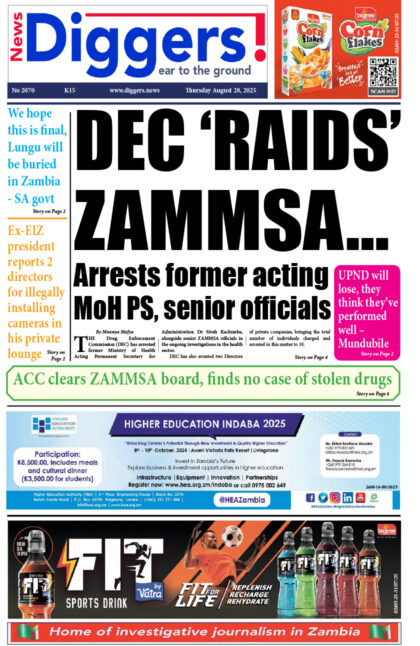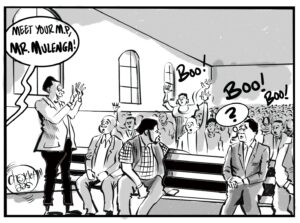ZAMBIA Law Development Commission (ZLDC) Director Hope Chanda says due to public outcry, the commission is working on addressing certain provisions considered as old colonial legislation, as part of its law review process.
Speaking on Hot FM’s Talking Law Review programme, Wednesday, Chanda said addressing colonial provisions would ensure a predictable and objective criminal justice legislation and framework which would be easier to understand.
“If you look at generally the categories of our recommendations in this particular process, we have had a lot of cries from the public that we have a lot of old colonial legislation. So one of the key achievements I think with this particular review is that we have addressed some of those colonial provisions; the defamation provisions, the provision on petty offences where you are arrested or criminalized for your socioeconomic status and a few other provisions. And also for us, one of the key findings was the conflicting provisions that have been developed over time within the penal code and other pieces of legislation,” she said.
“So it is timely in the sense that once this process is concluded, we are hopeful that we are going to have a more predictable and objective criminal justice legislation and framework which will be easier to understand. From a set of conduct you are likely to face one predictable criminal charge rather than the possibility that you can be charged under various offences.”
She said the commission had also been in discussion with the Ministry of Home Affairs to commence the review of the Public Order Act.
“We are also hoping as a commission that we can carry some work around review of the constitution, we are waiting for the Ministry of Justice to advise what direction that review process is going to take. We have also been in discussion with the Ministry of Home Affairs to commence the review on the public order act. So we are hopeful we will be getting into that review soon and we know it’s a piece of legislation that is of interest to members of the public. We are also in discussion with the Ministry of Mines to review and develop a few pieces of legislation around mining, standards for mining, environmental issues on mining,” Chanda said.
“We have one review that we completed late last year that we are hoping we can be submitting to the ministry next month. We have also been working with Zambian sugar on developing a sugar bill to regulate and also help manage the sugar industry within the country.”
She said the commission was also reviewing the gender-based violence act.
“We have been looking at the review of the gender based violence act. There have been calls from stakeholders that it needed review, especially in terms of application. A few years ago we developed the fast track court on gender based violence and they have faced some limitations especially in terms of the applicable rules and the applicable procedures. So there is a process to look at those and review them and also try and strengthen that particular legislation. So we are hopeful that within the year at least that is another review that can be concluded,” Chanda said.
She said the commission was further working on legislation to protect human rights defenders and define who a human rights defender is.
“For human rights defenders, the proposed legislation is to provide a framework to protect the work of human rights defenders – the people that you see in activism trying to advocate for certain positions or even just civil society groups that are working even in developmental projects. And also to define who a human rights defender is. But also in that particular piece of legislation, we have to reconcile it with the legislation on NGOs because most of them will generally fall under the umbrella of non-governmental organisations. With that one, we have concluded our initial review, we are going into undertaking comparative studies with other countries that have developed that legislation. Then there is also a model role on human rights defenders that we are reviewing and seeing what aspects of it will be relevant to Zambia,” Chanda said.
Meanwhile, Women in Law and Development in Africa executive director Muzi Kamanga said the organisation would engage government and members of the public to ensure that economic and social rights were added to the bill of rights.
“More prominent on our list of laws, we hope we will be making proposals or changes to the constitution. With the coming in of the new administration, if I got things right, there has been an indication that there will be a constitution review process. And for us one of the areas within the constitution that we have a lot of interest in is the bill of rights. Currently our bill of rights I think is limited up to first and second generation rights which is civil and political rights,” said Kamanga.
“We [are] hoping that this time around with the process that will come, should it come to pass, we will be trying to engage the powers that be and members of the public to ensure that we have economic and social rights added to our bill of rights. That is one of the areas that we hope to concentrate on.”























